

.jpg)
The exaltation of the Virgin Mary in certain Catholic contexts re-opens the internal debate. Evangelical theologian Leonardo De Chirico in Rome analyses the ‘pendulum’ of the last three centuries and rules out a profound reform of Marianism.
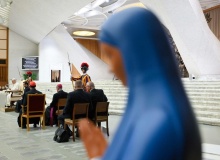
Roman Catholic Mariology always involves a thick doctrinal commitment to the full account of how Rome theologizes, celebrates, and venerates Mary. An analysis from Rome.
.jpg)
A circular sent from the Ministry of Education encourages public schools to participate in the Pope's events. The Italian Evangelical Alliance denounces a clear violation of the freedom of conscience of pupils.
.jpg)
Roman Catholicism is a formidable religious aggregator, and its “doctors” are all pieces of its theological puzzle. Why Newman? Here are two possible reasons.

Soldiers and family members of fallen heroes, chaplains, public figures, representatives of churches and religious organisations, were joined at the national breakfast by some 350 invited foreign guests.
.jpg)
The week of July 28 to August 3, Rome was filled with groups of young people from all over the world. I followed in particular the meetings of Roman Catholic influencers, the Italian and North American groups, and the final vigil with the Pope.
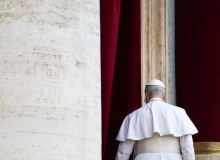
There is an expectation that Pope Leo will be able to exert an attraction from Protestantism towards Roman Catholicism in American society.

What is the office of the Pope? How does this institution fit into the global world and in the ecumenical relationships outside of Rome?
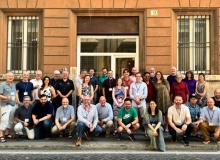
The question continues to resurface in evangelical circles: “Is the Catholic gospel the same as the biblical gospel?”
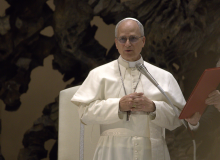
Prevost, still under 70, is a “young” pope with the possibility of a long pontificate. The conclave didn’t choose a bridge, it chose direction.
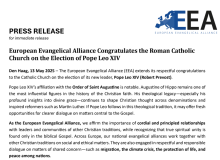
The European Evangelical Alliance also emphasises in a statement that “true spiritual unity is found only in the biblical Gospel”.
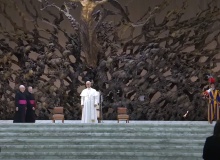
What is it that turns news professionals accustomed to questioning political and religious leaders into mere ‘fans’ when they travel to Rome to meet the new pontiff?
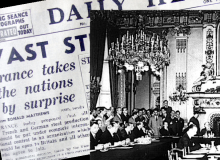
Headlines the world over last Friday announced the new pope, Leo XIV. Headlines 75 years ago on May 10, 1950, announced a new audacious plan for peace: ‘France takes the nations by surprise’, ‘Schuman bomb’.
.jpg)
Devotion to the Virgin Mary is the true bond between all popes and even the glue that holds Roman Catholicism together.
.jpg)
Presented as Pope Leo XIV, he was an Augustinian missionary in Peru for 40 years. He holds degrees in mathematics and theology and was appointed by Pope Francis to oversee the selection process for new bishops.
.jpg)
New and old. These two words describe Pope Leo XIV, newly elected by the conclave as head of the Roman Catholic Church.
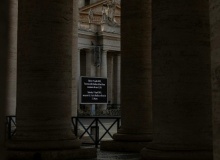
Does the Roman Catholic Church now accept that all religions lead to God? Where does this new view of religions come from? These are all legitimate questions.
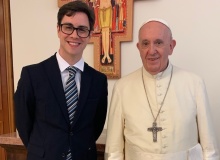
On the occasion of Pope Francis’ death, I would like to honour the posture of respect and esteem he nurtured towards evangelical Christians.
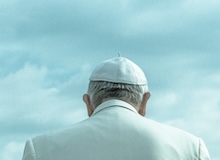
Theologian and pastor Leonardo De Chirico, a world specialist on Roman Catholicism, analyses the Pope's legacy.
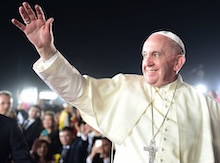
Jorge Mario Bergoglio, Pope Francis, died this Monday at the age of 88, after twelve years in office.

Started in 2010, the VF are a pool of resources to help evangelicals approach, understand and assess the complex reality of Roman Catholicism with gospel clarity and theological breadth.
.jpg)
The movie only anticipates some outcomes that are consonant with respect to the “catholic” (inclusive, all-embracing) direction that Jorge Bergoglio imprinted on the Roman Catholic Church.
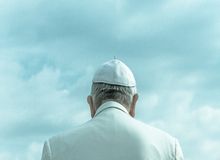
The latest encyclical of Pope Francis takes its cue from the Roman Catholic devotion to the Sacred Heart of Jesus to elaborate a more general reflection on the heart.
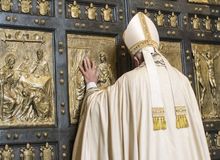
Next year will certainly be a holy year of religious tradition, but it cannot be called a jubilee in the biblical sense.
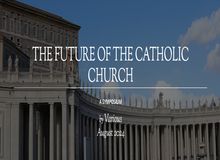
We are living through the waning and final phase of Pope Francis, and the topic of the future is not just an abstract exercise.

Las opiniones vertidas por nuestros colaboradores se realizan a nivel personal, pudiendo coincidir o no con la postura de la dirección de Protestante Digital.